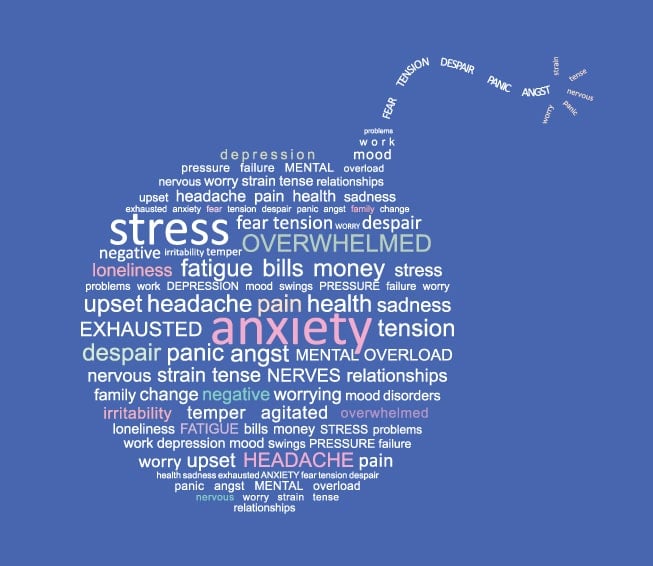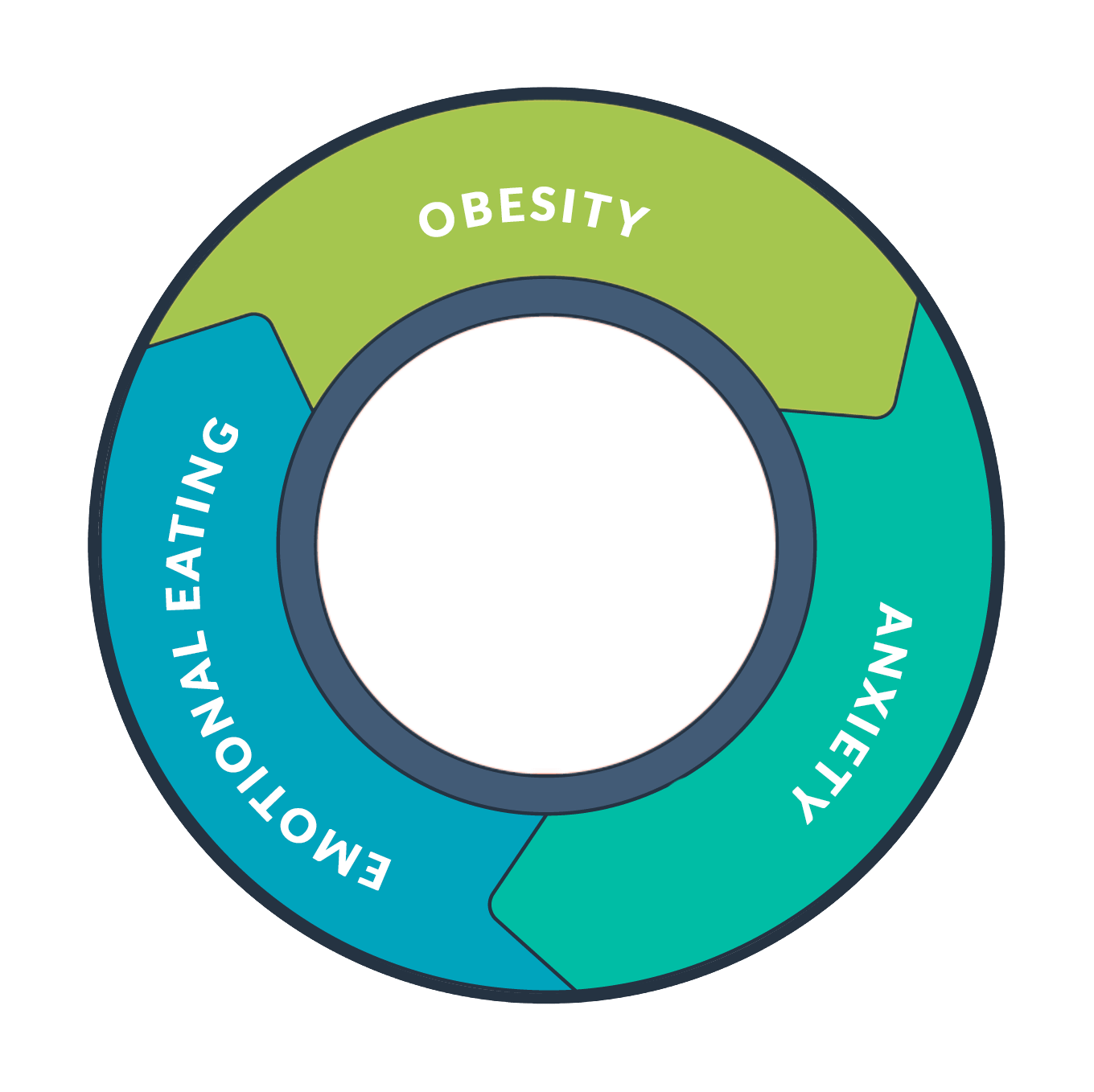
Magnesium is an electrolyte that works alongside other electrolytes to help our normal bodily functions occur. This mineral is involved in over 300 enzymatic processes in the body, including every major organ function—especially the heart and brain. But did you know that there is a link between magnesium deficiency and weight gain? Your body depends on magnesium for a lot of processes, like:
- Maintaining healthy DNA
- Controlling blood glucose
- Making proteins
- Helping your muscles work more efficiently (and not cramp up)
- Maintaining blood pressure
- Managing nerve cells
Magnesium has also been linked to lower levels of anxiety, depression, insecurity, irritability, headaches, restlessness, and other mood disorders.
So what does this mean for individuals suffering from the disease of obesity?
Magnesium Deficiency and Weight Gain
After bariatric surgery, patients can become nutrient deficient—including having low magnesium levels. This nutrient deficiency is exacerbated, especially given that a lot of magnesium-rich foods are not on your bariatric food list. These magnesium-filled foods include dark chocolate, legumes, nuts and seeds, avocados, whole grains, and bananas.
Yet another plug as your dietitian to tell you to TAKE YOUR VITAMINS!
Speaking of anxiety (see how I did that), let’s get back to the main topic of this blog: the link between magnesium and anxiety. But first, let’s talk about the link between obesity and anxiety.
Understanding how Anxiety Disorder Relates to Obesity
 Anxiety disorder is the most common mental health disorder in the United States, affecting around 40 million adults (aka 18% of the U.S. population).
Anxiety disorder is the most common mental health disorder in the United States, affecting around 40 million adults (aka 18% of the U.S. population).
Anxiety is characterized by feelings of worry, fear, and apprehension. It can also be felt physically, causing fatigue, irregular heartbeat, tension in the joints, and a sense of tightness in the stomach or chest.
There was a study conducted for the International Journal of Obesity to investigate the link between weight and anxiety disorders. What was found was,
“The relation between obesity and anxiety disorders might differ among subgroups of the population with varying sociodemographic, behavioral, and biological characteristics. For example, because of the greater social discrimination toward obese women,13 obesity might be more strongly related to anxiety disorders in women than in men.” Although many researchers may argue that this link between obesity and anxiety is inconclusive and hard to measure, what this study found was obesity did, in fact, have a stronger correlation to anxiety levels.
What this tells us is that individuals who suffer from the metabolic disease of obesity are generally living with higher levels of anxiety and depression. This is especially true for overweight women when compared to their male counterparts.
And the link between obesity and anxiety is cyclical. What we have seen in obese individuals, and especially in our practice, is obesity leads to higher levels of anxiety, and anxiety leads to an increased desire to eat in an effort to mask those uncomfortable feelings.
Sound familiar?
 So now that we understand the increased risk of suffering from anxiety as an obese individual, let’s talk about the role magnesium plays in our body.
So now that we understand the increased risk of suffering from anxiety as an obese individual, let’s talk about the role magnesium plays in our body.
Magnesium in the Body
Magnesium is not a naturally occurring mineral in the body; therefore, it must be consumed in the foods we eat (some of which I mentioned above).
But what is a healthy dosage of magnesium?

According to WebMD, “an adult woman needs about 310 milligrams of magnesium a day, and 320 milligrams after age 30. Adult men under 31 need 400 milligrams and 420 milligrams if they’re older.”
Over half of adults in the U.S are not getting enough magnesium in their diet throughout the day. Over time, these low levels can exacerbate the typical weight-related medical issues many obese individuals are already suffering from—diabetes, high blood pressure, gastrointestinal problems, and more.
Similarly, the overconsumption of carbonated, caffeinated, or alcoholic beverages can reduce your magnesium levels.
So now that we have set the stage, how do magnesium levels relate to increased anxiety levels?
Anxiety and Magnesium
When magnesium levels are low, a higher level of norepinephrine (a stress hormone) is produced, causing anxiety. This stress hormone leads to an increase in heart rate and blood pressure when we’re on edge.
 The link between magnesium and anxiety is a known correlation because we have found that magnesium can reduce blood pressure, particularly in individuals with high blood pressure and low magnesium levels.
The link between magnesium and anxiety is a known correlation because we have found that magnesium can reduce blood pressure, particularly in individuals with high blood pressure and low magnesium levels.
Finally, magnesium deficiency can cause unexpected muscle cramping, especially in your legs. This is because of magnesium’s direct interaction with muscle tissue. When we are stressed, we tend to tense up more without even realizing it.
Methods to Measuring and Improving Magnesium Levels
Here are step-by-step guidelines for measuring and improving our magnesium levels so we can start living with less anxiety.
Start supplementing 400 to 600mg of magnesium malate or magnesium glycinate daily.
If you feel better, continue supplementing with these amounts and get a magnesium RBC test when you can.
Test 1 month again, or as soon as one week, if you can and see if your levels rise. Your aim is 6.0mg/dL to 6.8mg/dL for your RBC test result.
If you are significantly lower than 6.0mg/dL (5.0 or lower), use up to 1000mg of magnesium supplementation daily until you reach desired levels, then go back down to the 400 to 600mg range.
Magnesium supplementation is generally safe due to the body’s ability to eliminate unneeded magnesium via the laxative effect. However, if you start feeling adverse effects, test one more time. If you are above 7.0mg/dL, taper off the magnesium. If you are still low, your symptoms may be from still being deficient. Some people are “magnesium wasters” who go through the mineral very rapidly. They may need 1000mg a day as a maintenance dose.
Well, now that you understand the correlation between magnesium and anxiety. and how that directly impacts individuals suffering from obesity, hopefully you will begin taking your vitamins and eating lots of leafy greens—a dietitian’s best friend!












